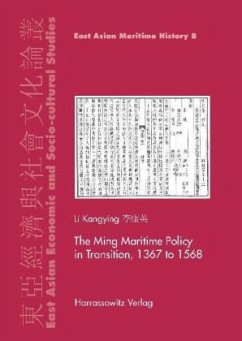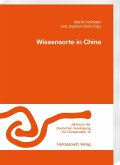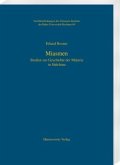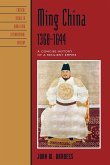"The Ming maritime policy in transition, 1368-1567" is an unprecedented structural approach to one of the most puzzling phenomena in Chinese early modern history: the maritime trade prohibition from 1368 to 1567. This policy deliberately interdicted its own people from sailing abroad and prevented foreigners from entering China unless they were part of an official tribute mission. Other than treating this phenomenon as an isolated trade policy or defense strategy the author analyzes the policy against the general Chinese historical background from the fourteenth to sixteenth centuries. He approaches the policy as a superstructure established on the foundation of a compatible ideology, the social context, economic institutions and the political power landscape. The 200 years long process of the policy in transition is hence investigated as a 200 years course that witnessed the general transformation of the Ming ideological, social, economic and political structures. It is the historical undercurrent rather than spindrift that appeals to this book's historiography; it is a comprehensive study of the two particular centuries of the Ming society, of which the developments and characteristics have amazed not only historians.







